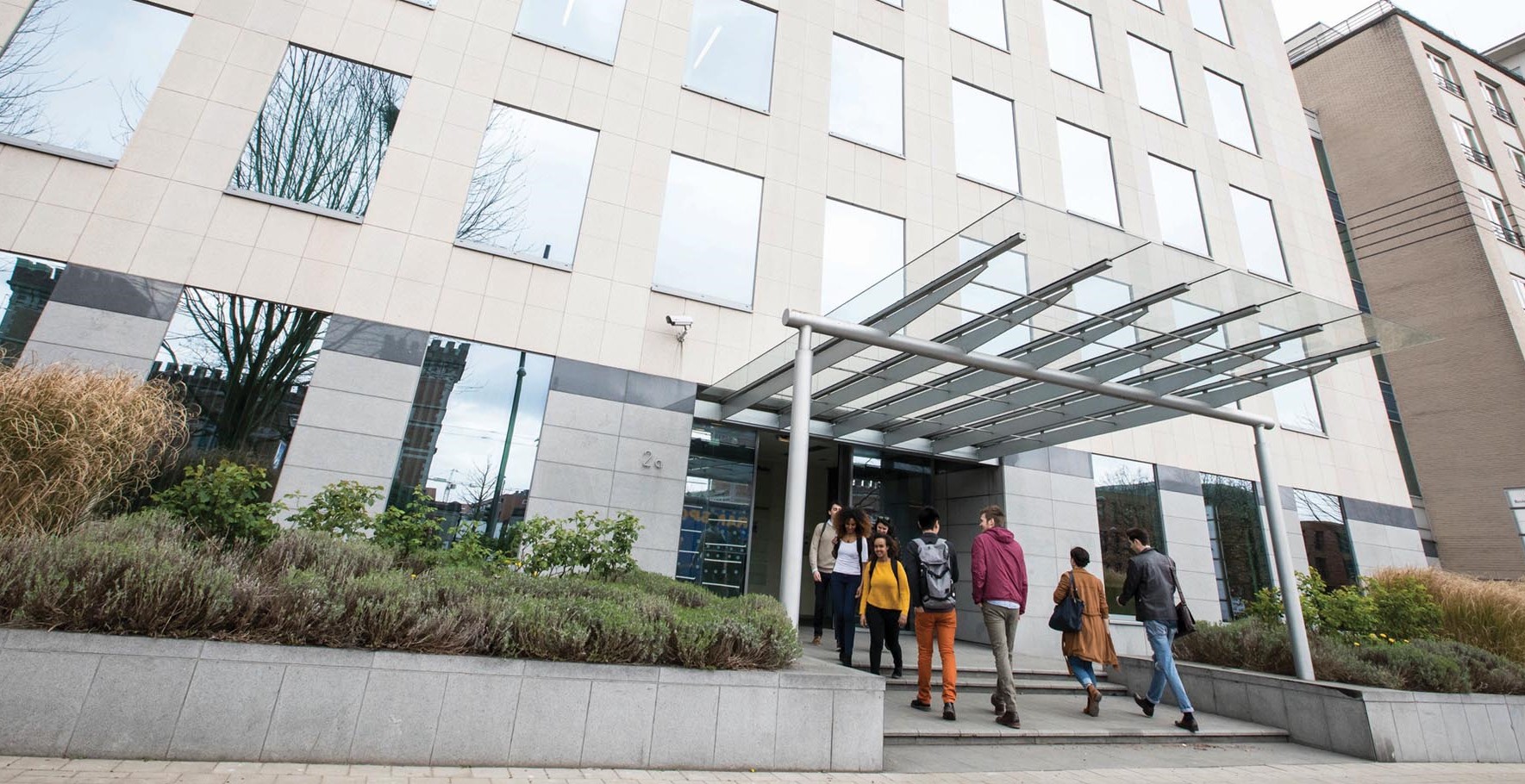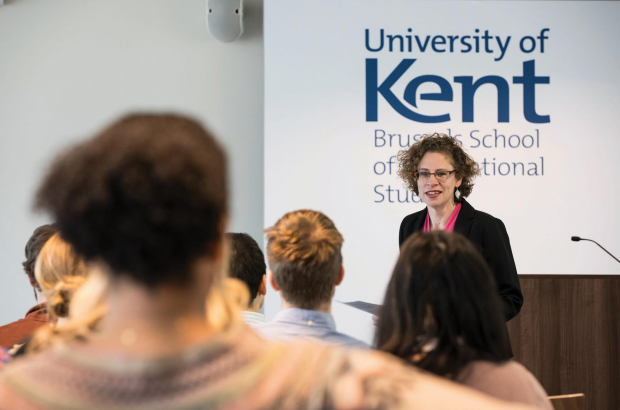- Daily & Weekly newsletters
- Buy & download The Bulletin
- Comment on our articles
Brussels School of International Studies offers master’s degrees straight from the capital of Europe
While there are many good reasons to study international law, relations or politics in the capital of Europe, this year has added another: a health crisis. For those considering getting a master’s degree within those fields, staying in Belgium has never looked better.
While borders are starting to open up, not all countries are accepting students from all other countries; travel continues to be limited, and it’s unsure how long that will continue. From the student’s perspective, facing a potential second wave of coronavirus infections could mean being quarantined in another country and stuck there for longer than they had planned.
And of course many institutions will be holding class sessions online this autumn, meaning the very experience of studying abroad will be lost.
That’s why local universities are moving to the top of prospective students’ lists. When it comes to studying international relations, politics or law in English, that list can be whittled down to one name: the University of Kent’s Brussels School of International Studies (BSIS) in Etterbeek.
‘The best place you can be’
“For international relations studies, this is the best place you can be,” says Michael Sewell of the school’s admissions department. “A lot of master’s students have already done their study abroad. They went with Erasmus to Spain or to Italy, and now it’s the serious bit. They want a master’s degree, they want to make contacts. Brussels is the best place in Europe to network and to make contacts in international relations.”
Students are still drawn to BSIS for the same reasons they were when the University of Kent established it 20 years ago: To get a specialised master’s degree in English in the heart of Europe. “The school of politics in Canterbury wanted to open a school to allow people to get a British education in Brussels,” explains Sewell, “and to combine it with work experience at the institutions – the EU, Nato and all of the NGOs that are located here.”
The ability to study part time and to learn from teachers who come straight from the European Commission or Nato is hard to resist for those looking to enhance or alter their career path. Studying in English also appeals to younger students. “Brussels is such an international city, and English is so widely spoken here, particularly in the organisations. A lot of the education in Belgium is in French or Dutch. But there is certainly an appetite for studying in English.”

These varying reasons for choosing the school make for a diverse student body. “We have students in their early 20s, students who have four or five years’ work experience, and then we have students with many more years of work experience who are studying part time or taking a career break. Such a diverse group of students is an added bonus because you’re not just learning from teaching, you’re learning from each other.”
Another advantage of BSIS is the ability to choose a specialisation within the master’s degree. While a student might be studying international law, they can combine that with modules from the human rights law degree. International relations, for instance, is a very broad subject, so it can be combined with modules from another MA to create a specialisation in migration, say, or in conflict and security.
“We started this interdisciplinary approach about five years ago because students were trying to explain it on their CVs – how they got this specialisation through the modules they’d done,” says Sewell. “So we now offer them an official recognition on their degree certificate.”
And for those really itching to go overseas, it’s possible to study at BSIS and then do a six-month or year-long second master’s at one of its partner institutions in Beijing or Washington DC.
For more information about study options at the Brussels School of International Studies, see the website or contact the admissions office at (0)2 641 1721 or bsis@kent.ac.uk


















